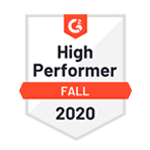As a search agency, we understand the importance of having a well-trained team of recruiters who can help us find the best candidates for our clients. Training your recruiters is not only important for the success of your agency, but it is also important for the growth and development of your recruiters themselves. In this article, we will discuss the 10 things that you should keep in mind while training your recruiters for your search agency.
-
Define your company culture and values
Before beginning recruiter training, it’s critical to define your company’s culture and values.
According to a Deloitte study, the majority of executives and employees believe that a unique workplace culture is critical for business success.
Recruiters who understand and embody your company culture and values will be better equipped to find candidates who fit well with your organization.
By hiring candidates who align with your company culture, you can foster a more engaged and productive workforce.
A positive company culture can also lead to lower turnover rates, higher employee satisfaction, and a stronger employer brand.
In short, if you clearly define company culture and values, you can set a successful recruiter training and overall business success.
-
Understand the job requirements
Having a clear understanding of the job requirements is crucial in training recruiters effectively.
Technical skills and soft skills are both essential elements that recruiters need to understand to find the right candidates.
According to a survey by LinkedIn, 64% of hiring managers believe that soft skills are more important than hard skills.
Recruiters should have a thorough understanding of the job description, including the required education, experience, and certifications.
In a survey by Jobvite, 72% of recruiters stated that understanding job requirements is the most important aspect of their job.
By training recruiters to understand job requirements, they will be able to identify the most suitable candidates, which can result in a more efficient and successful hiring process.
-
Develop a recruitment process
Developing a recruitment process can help you find the best candidate for a job. According to a survey by SHRM, the average cost-per-hire is $4,129. A well-defined recruitment process can reduce costs and save time. It can also help you avoid legal issues related to discrimination. A study by LinkedIn found that the average time-to-hire is 36 days. A recruitment process can help you streamline this timeline. Training your recruiters on the process can ensure consistency and improve the quality of hires.
-
Focus on communication skills
Effective communication is crucial for successful recruitment. According to a study, 93% of communication effectiveness is determined by nonverbal cues.
Therefore, recruiters must communicate clearly and effectively with candidates, clients, and colleagues. Miscommunication can lead to a bad candidate experience and a damaged employer brand.
In fact, 72% of job seekers share their bad interview experience online. Therefore, it’s important to train recruiters on communication skills, including active listening, asking effective questions, and giving feedback. Effective communication can lead to better candidate experience, faster time-to-fill, and improved retention rates.
-
Train on technology
Staying up-to-date on technology is crucial for recruiters. The HR technology market is expected to reach $30 billion by 2025.
The use of recruitment technology can reduce time-to-hire by up to 50%. It can also improve candidate experience and increase diversity.
Providing training on technology can help recruiters use the tools and platforms effectively. This can lead to improved efficiency, better candidate matches, and increased revenue. Additionally, it can help agencies stay competitive in the market.
-
Emphasize the importance of candidate experience
Providing a positive candidate experience is critical in recruitment. A study found that 83% of job seekers said a negative interview experience can change their mind about a role or company they once liked. Additionally, 72% of job seekers share their bad interview experience online, which can damage the employer brand. On the other hand, a positive experience can lead to increased referrals and positive reviews. In fact, 78% of candidates would refer a friend to a company where they had a positive experience (CareerArc).
Company must train recruitersvon the importance of candidate experience. A survey showed that only 46% of candidates are satisfied with their overall candidate experience. Providing a positive experience can help differentiate your agency from competitors. Additionally, candidates who have a positive experience are more likely to accept a job offer. A study found that candidates who had a positive hiring experience were twice as likely to accept the job offer than those who had a negative experience (IBM).
Providing recruiters with the tools and resources to deliver a great experience is important. This can include training on communication skills, personalizing the candidate experience, and using technology to streamline the process. By prioritizing the candidate experience, recruiters can attract top talent, improve retention rates, and strengthen the employer brand.
-
Develop a network
Developing a strong network is crucial for recruiters. According to a survey, 85% of all jobs are filled through networking. Encouraging recruiters to build relationships in the industry can lead to more referrals and better candidate matches. In fact, a referral is 5 times more likely to be hired than a candidate who applies through a job board (ERE Media).
Training recruiters on networking skills is important. This can include identifying potential contacts, such as alumni, industry experts, and past candidates. Recruiters should also know how to introduce themselves and build a rapport with potential contacts. Additionally, following up after a networking event can help maintain the relationship and lead to future opportunities.
Networking can also help recruiters stay up-to-date on industry trends and changes. Building relationships with industry experts can provide valuable insights and knowledge. This can help recruiters make informed decisions and better serve clients.
By developing a network, recruiters can improve their sourcing and recruitment efforts, strengthen relationships with clients, and position themselves as experts in the industry.
-
Provide ongoing training and development
Providing ongoing training and development opportunities is crucial for recruiters. The recruitment industry is constantly evolving, and staying up-to-date on industry trends and best practices is important for success. In fact, a survey found that 70% of employees say training and development opportunities influence their decision to stay with a company (Udemy).
Attending conferences, workshops, and online training courses can provide valuable insights and knowledge. For example, attending a conference can provide access to industry experts, networking opportunities, and the latest industry trends. Online training courses can provide flexibility and convenience for recruiters to learn at their own pace.
Providing ongoing training can also improve job satisfaction and retention rates. A study found that employees who received ongoing training were 70% less likely to leave their job within a year (HR Dive). Additionally, providing opportunities for career development can help attract top talent and improve the employer brand.
Overall, providing ongoing training and development opportunities can help recruiters stay competitive in the industry, improve job satisfaction and retention rates, and attract top talent.
-
Monitor performance
Monitoring recruiter performance is essential to ensure that they meet agency and client expectations. By providing regular feedback and monitoring performance metrics, recruiters can improve their performance and meet their goals.
Tracking key performance indicators (KPIs) such as time-to-fill, candidate satisfaction, and client satisfaction can help monitor recruiter performance. For example, measuring time-to-fill measures the amount of time required to fill a job opening, while measuring candidate satisfaction determines how satisfied candidates are with the recruitment process. Similarly, measuring client satisfaction determines how satisfied clients are with the quality of candidates presented.
Regular feedback is important for improving performance. This can include positive feedback for a job well done or constructive feedback for areas that need improvement. By providing regular feedback, recruiters can understand what they are doing well and identify areas for improvement.
In addition, monitoring performance can help identify areas where additional training may be needed. For example, if a recruiter is consistently falling short in candidate satisfaction scores, additional training on communication and candidate experience may be needed.
Overall, monitoring performance is crucial for ensuring that recruiters are meeting agency and client expectations, improving performance, and identifying areas for training and development.
-
Encourage collaboration
Encouraging collaboration among recruiters can have a positive impact on the recruitment process. By sharing best practices, brainstorming, and supporting each other, recruiters can work together more effectively and deliver better results for clients.
Collaboration can lead to increased creativity and innovation. By sharing ideas and experiences, recruiters can develop new strategies and solutions for difficult searches. Additionally, collaboration can lead to a stronger sense of teamwork and accountability, as recruiters work together towards common goals.
To foster a culture of collaboration, provide opportunities for recruiters to work together, such as team meetings or joint candidate interviews. Encourage open communication and provide a platform for sharing best practices and success stories. Celebrating wins and recognizing the contributions of team members can also help build a culture of collaboration.
Research shows that teamwork and collaboration are critical to success in the workplace. In fact, a study found that collaborative teams are five times more likely to be high-performing than non-collaborative teams (Harvard Business Review).
Overall, encouraging collaboration among recruiters can improve teamwork, creativity, and innovation, leading to better results for clients and a more positive work environment.
Conclusion
Developing a successful recruitment process requires a comprehensive approach that includes training, ongoing development, and monitoring of performance. Providing training on communication, technology, networking, and candidate experience can help recruiters work more effectively and provide a better experience for clients and candidates. Encouraging collaboration among recruiters can foster teamwork and creativity, leading to improved results. By prioritizing these elements, agencies can establish a strong foundation for successful recruitment and a positive work environment.






















